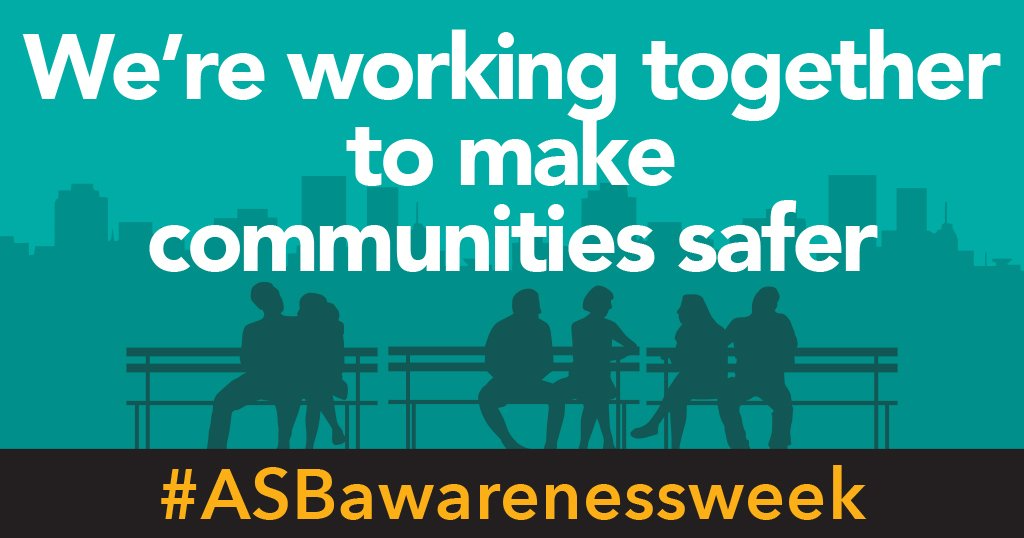Notice Periods and ASB: 5 Keys facts for ASB Awareness week
Joseph Warren • July 19, 2021
ASB Awareness week is a good time for a reminder of where we currently are with notice periods and the use of notices relating to anti-social behaviour for possession proceedings in the ever changing legal landscape. We set out below 5 key facts to know.
#1 Prescribed format of notices
Until 30 September 2021, the Form 3 (Section 8 Notice Seeking Possession or NOSP) and Form 6A (Section 21 notice) are in an amended format. The current versions are on the gov.uk website. Given the changing landscape, it is safest to use the notices published on this website rather than relying on saved templates on your systems. Assured tenancy forms - GOV.UK (www.gov.uk)
#2 Notices served using Ground 14 of Schedule 2 of the Housing Act 1988 (discretionary ASB ground)
The notice period can be immediate (subject to your tenancy agreement promising a longer period) where you are using Ground 14. This is even the case when it is combined with other grounds. The one exception to this rule is when using Ground 7A in addition to Ground 14 (see #3 below).
#3 Notice served using Ground 7A of Schedule 2 of the Housing Act 1988 (mandatory ASB ground)
The notice period has to be 28 days or a month (depending on whether the tenancy term is periodic or fixed). This is even the case where it is combined with any other grounds.
#4 Notice served using Ground 14A of Schedule 2 of the Housing Act 1988 (discretionary Domestic Violence ground)
Where you are not using Ground 14A, the notice period has to be 2 weeks. However, if used alongside Ground 14 and/or Ground 7A the rules around notice periods using those grounds apply (see #2 and #3).
#5 Section 21 notices
Until 30 September 2021 a Section 21 Notice needs to be 4 months in length and cannot be enforced 8 months after it is served.
**It should be noted that this guide states the law as it currently stands, and it could be subject to further change or extension by the Government. Legal advice should be sought for each case dependent on the date you take action.


Assured Tenancies (Private Rented Sector) (Written Statement of Terms etc and Information Sheet) (England) Regulations 2026 The above Regulations have been brought in as part of the implementation of the Renters Rights Act 2025. They require landlords to provide (in addition to the Tenancy Agreement) a Written Statement of the Terms and a Government prescribed Information Sheet. To start with, this will only apply to non-social housing tenancies, it is likely to be extended to social housing in 2027. Associations with market rent tenancies need to be aware of this change for those tenancies ready for 1 May 2026. The full details are below. 1. What Landlords Must Provide The Regulations prescribe two separate documents: A Written statement of terms and, B an Information Sheet. A. Written statement of terms A draft version of the written statement of terms has been published by the government. This draft is expected to be finalised in March 2026. Based on the current draft, the written statements of terms must contain the following prescribed information: Details of the parties Landlord’s details: Full name of the landlord(s). Address for service: An address in England or Wales where the tenant can serve notices on the landlord Tenants’ details: Names of each of the tenants. Tenancy terms Start date: The date on which the tenancy begins and the tenant may take occupation. Rent: The amount of rent payable and the date it falls due. The rent period must not exceed one calendar month. Bills: Where the landlord charges the tenant for bills, the written statement must specify whether these charges form part of the rent or are payable in addition to the rent. If bills are payable separately to the landlord, the statement must set out: either the amount of each payment or how and when the tenant will be told the amount, and ·either the due date for each payment or how and when the tenant will be told the due date. Rent increases: A statement confirming that any rent increase must be proposed by serving a notice under section 13 of the Housing Act 1988. Deposit: The amount of any tenancy deposit. Ending the tenancy Tenant’s notice to quit: The minimum notice period the tenant must give to end the tenancy, where the Protection from Eviction Act 1977 applies. Possession by the landlord: A statement confirming that the landlord may only end the tenancy by obtaining a possession order from the court and having that order executed. To apply for possession, the landlord must first serve a notice of proceedings in the prescribed form, setting out the ground or grounds relied upon, and giving the correct notice period for those grounds. Safety and compliance information Fitness for human habitation: A statement that the landlord must ensure the property is fit for human habitation in accordance with section 9A of the Landlord and Tenant Act 1985. Repairs: A statement of the landlord’s repairing obligations under section 11 of the Landlord and Tenant Act 1985 Electrical safety: A statement that the landlord must ensure electrical safety standards are met throughout the tenancy Gas safety: A statement that the landlord must maintain gas appliances and flues in a safe condition, arrange annual safety checks, and provide the tenant with a copy of the gas safety record (if the gas safety regs apply) Tenant rights Pets: A statement that the tenant may request permission to keep a pet in accordance with section 16A of the Housing Act 1988, and that the landlord must not unreasonably refuse consent. Disability improvements: Information about the tenant’s right under section 190 of the Equality Act 2010 to apply to make disability‑related improvements, and that the landlord must not unreasonably withhold consent. The written statement can be included within the tenancy agreement, provided that all required information is present. B. Information sheet This is a standard Government document summarising: 1. Tenant rights 2. Landlord duties 3. Routes for raising concerns or seeking redress Landlords must provide the official version and cannot substitute their own. 2. When the Requirements Apply As a general rule, the required information must be provided before the tenancy is entered into. An exception applies in cases of succession. In those circumstances, the landlord must give the tenant the prescribed information within 28 days of acknowledging the tenant’s right to succeed to the tenancy. Landlords and letting agents do not need to provide a written statement of terms where: There is already a written record of the tenancy agreement between the landlord and the tenants, whether the agreement is wholly or partly in writing. This includes, for example, an assured shorthold tenancy agreement or any written record of the key terms. The tenancy agreement was entered into before 1 May 2026, meaning it was signed by both parties before that date and is therefore an existing agreement. In these cases, instead of issuing a written statement of terms, landlords must give all tenants who are in occupation on 1 May 2026 a copy of the official Government Information Sheet, which explains how the Renters Rights Act may affect their tenancy. 3. Who Must Comply The Regulations apply to all private landlords in England who grant new assured tenancies, including landlords who use letting agents. It does not apply to social housing landlords yet. Section 145(8) of the Renters Rights Act states that Chapter 1 of Part 1 of the Act will apply to private and social housing tenancies on different dates. We do not have a commencement date for the social housing sector yet. 4. Enforcement and Consequences of Non‑Compliance If a landlord does not provide the written statement of terms before the tenancy is entered into, the local authority may issue a civil penalty of up to £7,000. Author: George Ufumwen

This note will be updated as secondary legislation is published. The Renters’ Rights Act 2025 ("the Act") became law on 27 October 2025. Its provisions will come into force in phases, with the Social Rented Sector being brought into the new tenancy system in 2027 (please see the commencement section below). This guidance note covers: ■ The abolition of fixed term tenancies ■ The abolition of Assured Shorthold tenancies ■ New and amended grounds for possession of Assured tenancies ■ Updates to Court considerations for ASB ■ Changes to rent increase procedures ■ Prohibition of rent in advance ■ Changes to Notices to Quit from tenants ■ Shared Ownership leases ■ Pets ■ Commencement – when does this all apply to Social Landlords? 1. The abolition of fixed term tenancies From when the Act comes into force, you can only grant periodic assured tenancies. They'll run week by week or month by month, depending on the rental period. So if rent is due monthly, you'll have a month-by-month periodic tenancy. The Act prohibits rental periods longer than a month. You can grant an assured tenancy with a period of up to 28 days (weekly, fortnightly, or 28-day periods) or a monthly period. Where an existing tenancy has a period exceeding a month (e.g. quarterly), it becomes a monthly periodic tenancy. The Act contains a calculation for recalculating the rent in these circumstances. 2. The abolition of Assured Shorthold tenancies When the Act comes into force, you can no longer grant Assured Shorthold tenancies ("ASTs"). This also means you can no longer use Notices under Section 21 of the Housing Act 1988. Any cases where you've already served a Section 21 notice will not convert to an Assured tenancy. The Section 21 notice remains valid until: Any court proceedings based on the Section 21 notice are concluded, or The Section 21 ceases to be valid due to time (i.e. after 6 months from the date of the notice or 3 months from the commencement of the relevant part of the Act, whichever is soonest). You'll need to review your Starter Tenancy regime. Your options are to either withdraw it entirely or amend it so the Starter tenancy is an Assured tenancy from the outset but with restricted rights during the starter period (such as excluding the Right to Exchange or limiting succession rights). The Regulator of Social Housing is likely to provide more guidance on this shortly. It's anticipated that, because of the need to consult on and introduce a new Tenancy Standard, ASTs may be abolished for private landlords before they're abolished for social landlords (although the ability to grant new ASTs may be curtailed in the meantime). 3. Amended Grounds for possession 3.1 Notice periods Notice periods for Grounds 8, 10, and 11 of Schedule 2 of the Housing Act 1988 will extend to 4 weeks (from the current 2 weeks). Ground 7A will have an immediate notice period when the Act comes into force, the same as Ground 14 currently does. Both ASB grounds will therefore have the same notice period. This notice period also overrides any other grounds' notice period. There are seemingly no plans to amend the Pre-Action Protocol for Possession Claims by Social Landlords. You'll still need to offer tenants the opportunity to request a review of a notice served on Ground 7A (and/or any other mandatory grounds) before you can commence proceedings. 3.2 New Grounds for possession There are many new grounds for possession to assist in situations where you may previously have used an AST. We set out below the ones which may be most useful to you: Ground 1B (mandatory) – Use this ground to seek possession of properties let via Assured tenancies pursuant to a rent-to-buy agreement where the rent-to-buy period has expired. For this ground to apply, the rent-to-buy agreement must cap the rent at no more than 80% of market rent and must notify the tenant that they'll be offered the opportunity to purchase the property within at least 5 years (or 10 years in London). Before seeking possession, you must comply with the requirements for offering the property to the tenant. You can only seek possession where, following the granting of possession, you intend to (a) sell the property or (b) grant a lease of more than 21 years or (c) grant an assured tenancy to another person. Ground 2ZA (mandatory) – Use this ground where your superior lease has come to an end. This ground is only available for providers of social housing and agricultural landlords, persons who hold the dwelling for the purposes of making it supported accommodation, or companies majority owned by a local authority. Ground 5B (mandatory) – Use this ground where you let a property in connection with the tenant's employment, someone else now requires it in connection with their employment, and the original tenant no longer needs it for their employment. Ground 5D (mandatory) – Use this ground where the tenancy contained a specific requirement connected with the tenant's employment and the tenant no longer fulfils that requirement. Ground 5E (mandatory) – Use this ground where you hold the property for providing supported accommodation and the tenant didn't enter the tenancy for the purposes of receiving care, support, or supervision. Ground 5F (mandatory) – Use this ground where you granted the tenancy to provide the tenant with support services for a limited time to enable them to live in other accommodation in the future, and that period has ended. Ground 5G (mandatory) – Use this ground where the occupation was to assist the local authority with a section 193 homelessness duty and that duty has ended. Ground 5H (mandatory) – Use this ground where the tenant's occupation was based on meeting eligibility conditions (such as age, work, or seeking work), the tenancy set out those conditions, and the tenant no longer meets them. Ground 6A (mandatory) – Use this ground to obtain possession of a property you let to a tenant (or their predecessors in title) whilst their original property (which you also let to them) was being redeveloped. You must have alternative accommodation (which may be the original, now redeveloped, property) available for the tenant when the possession order takes effect. Ground 6B (mandatory) – Use this ground to obtain possession where: ■ You need possession to comply with: ○ A banning order under section 16 of the Housing and Planning Act 2016 ○ An improvement notice under sections 11 and/or 12 of the Housing Act 2004 (but only where overcrowding is specified as the cause of the hazard) ○ A prohibition order under sections 20 and/or 21 of the Housing Act 2004 (which prohibits use of (a) the property (or any part of it), or (b) the common parts (or any part of them)) ○ An enforcement notice issued under sections 172 or 182 of the Town and Country Planning Act 1990 ○ A breach of condition notice served under section 187A of the Town and Country Planning Act 1990 ○ An injunction granted under section 187B of the Town and Country Planning Act 1990 ○ A listed building enforcement notice served under sections 38, 45, or 46 of the Planning (Listed Building and Conservation Areas) Act 1990 ○ An injunction granted under section 44A of the Planning (Listed Building and Conservation Areas) Act 1990 ■ The property is an HMO which requires licensing (including selective licensing) but (a) the Local Authority has refused the licence or (b) the Local Authority has revoked the licence, or (c) the property is occupied by more persons than permitted under any licence. Ground 6B may give rise to a compensation payment (assessed by the court) payable to the tenant. Where the notice/order is made under the Housing Act 2004, it may also give rise to a home loss and/or disturbance payment from the Local Authority which made the order. Ground 18 (discretionary) – Use this ground where the tenancy is of supported accommodation and the tenant has unreasonably refused to co-operate with the person providing support services. 3.3 Amended Grounds of Possession The Act amends many grounds of possession. We set out below the ones which may be most useful to you: Ground 6 (mandatory redevelopment ground) – You can use the amended redevelopment ground to obtain possession of a property where you need to carry out redevelopment works (demolition, rebuilding, or substantial works to the property or the building containing it) which cannot be completed with the tenant remaining in situ (or where the tenant has refused to vary the tenancy to enable the works). You must undertake the works yourself. The tenancy must (except in the case of compulsory purchase) have commenced at least 6 months before the date on which you could commence possession proceedings (as specified in the Section 8 notice). You can only use this ground if you were (a) the landlord when the tenancy was granted or (b) became the landlord after the tenancy was granted, but only where the transfer to you was not for money (or money's worth). You must also have alternative accommodation available for the tenant when the possession order takes effect. Alternatively, you may offer temporary accommodation as an interim measure until long-term alternative accommodation is available. You don't need to offer alternative accommodation where (a) the tenancy wasn't granted pursuant to a nomination as mentioned in section 159(2)(c) of the Housing Act 1996 and (b) you gave the tenant notice of your intention to rely on Ground 6 before the tenancy commenced (and that notice specified the period in which redevelopment works would commence). Using Ground 6 may still give rise to the need to pay home loss and/or disturbance payments. Ground 8 (mandatory rent ground) – The arrears threshold has increased from 8 weeks to 13 weeks (or from two to three months, if rent is payable monthly). You also cannot include amounts expected to be received from benefits. References to quarterly and yearly rent will be removed as these will no longer be permitted. 4. Updates to Court considerations for ASB Section 9A of the Housing Act 1988 now includes a new element. This section relates to what a court should consider when deciding possession under the ASB Ground 14. Judges must now also take into account: "whether the person against whom the order is sought has co-operated with any attempt by the landlord to encourage the conduct to cease." This is likely to refocus judges' attention on your escalation attempts at curbing ASB, such as Acceptable Behaviour Contracts, warnings, referrals for support, and injunctions. 5. Changes to rent increase procedures The Act creates a new Section 13A of the Housing Act 1988. You must follow the Section 13A procedure for rent increases, either by (1) a new prescribed form (yet to be revealed) under Section 13A(2) or (2) by an agreement between you and the tenant (which is likely to include a term in the tenancy agreement setting out a different method of increase) under Section 13A(6). In most cases, follow the procedure set out in your tenancy agreement as normal, except where the tenancy is silent OR where it refers to the Section 13 process. In those cases, apply the new Section 13A process. Section 13A states you can increase rent as follows: ■ Serve a notice in the prescribed form proposing a new rent to take effect at the beginning of a new period of the tenancy. That period must be: ○ At least 1 month after the date you serve the notice ○ At least 52 weeks after the previous increase or determination took effect "Determination" means determination on application by the tenant to a Tribunal. This has an unintended consequence: if a tenant challenges the increase and asks a Tribunal to determine the rent, that determination date becomes the new rent increase date for the following year. You may then have scattered tenancies out of sync with the rest for subsequent increases. 6. Prohibition of rent in advance You cannot take or demand any rent before the signing of a tenancy agreement. 7. Changes to Notices to Quit from tenants Tenants must give 2 months' notice to quit by default in the absence of any other agreement. If your tenancy agreement specifies a shorter period (such as 1 month, which is common in the sector), that period applies. However, the 2-month period applies if you cannot locate the original tenancy agreement or if the tenancy agreement is silent on the notice period. 8. Shared Ownership leases Shared Ownership Leases are currently a form of Assured tenancy. When the Act takes effect, they'll be reclassified as long leases. This changes how you enforce breaches. Notices – You can no longer use a Section 8 notice (NOSP) for lease breaches. Instead, follow this 2-stage process: Obtain a determination of the breach from the Tribunal or County Court (or get an admission from the leaseholder) Serve a notice under Section 146 of the Law of Property Act 1925 Possession proceedings – If the breach isn't remedied after the notice process, you'll need to pursue possession based on forfeiture. This is anecdotally harder to achieve. The Court has wide powers to grant relief from forfeiture, and there are no mandatory possession routes. Be aware: you can 'waive' a breach by accepting rent or otherwise treating the lease as continuing during the possession process. Existing notices – If you've already served a NOSP before this part of the Act commences, it remains valid. You can enforce it via the Section 8 Housing Act route, and that shared ownership lease stays assured. Section 8 Notices remain valid for 12 months . 9. What about pets? No changes in the social housing sector for non-market rent properties. In the private sector, tenants will have a right to request consent to keep a pet. Landlords cannot unreasonably withhold that consent. 10. Commencement – when does this all apply to Social Landlords? The government published its implementation roadmap on 13 November 2025, setting out a phased approach to bringing the Act into force. Key dates: 27 December 2025 (2 months after Royal Assent): ● Shared ownership leases cease to be assured tenancies (see Section 8) ● Investigatory powers for local authorities come into effect ● Local authorities begin reporting requirements 1 May 2026: ● Main reforms commence for the private rented sector only ● All existing and new private tenancies move to the new system ● This includes: abolition of Section 21, transition to periodic tenancies, rent increase limits, bidding ban, pet requests, and discrimination measures Late 2026: ● PRS Database operational ● PRS Landlord Ombudsman operational 2027: ● Social Rented Sector brought into the new tenancy system ● This will follow consultation on a new Tenancy Standard ● Specific date within 2027 to be confirmed by Regulations TBC (but likely after 2035): ● Decent Homes Standard extended to private rented sector ● Awaab's Law extended (subject to consultation) The staggered approach means private landlords will be subject to the main reforms from 1 May 2026, but social landlords will not be brought into the new system until 2027. The Regulator of Social Housing is expected to provide further guidance on the transition for social landlords, including the consultation on the new Tenancy Standard. 11. Written Statements and Information Sheets The Assured Tenancies (Private Rented Sector) (Written Statement of Terms etc and Information Sheet) (England) Regulations 2026 have been brought in as part of the implementation of the Renters Rights Act 2025. They require landlords to provide (in addition to the Tenancy Agreement) a Written Statement of the Terms and a Government prescribed Information Sheet. To start with, this will only apply to non-social housing tenancies, it is likely to be extended to social housing in 2027. Associations with market rent tenancies need to be aware of this change for those tenancies ready for 1 May 2026. The full details are below. Please see our separate article here on for full details here .



